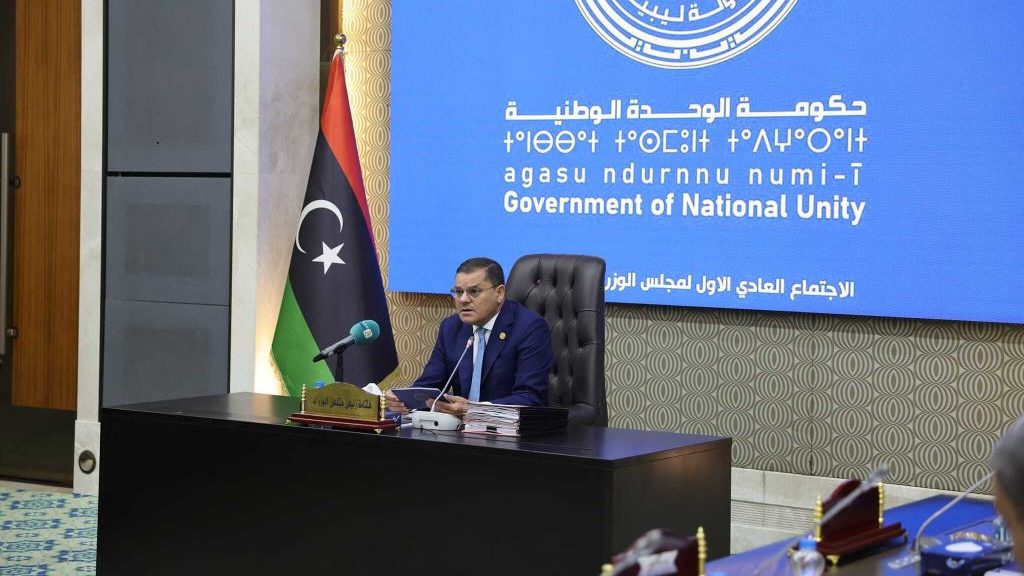National Unity, Logistical Infrastructure Key To Holding Elections in Libya
Even though rival governments have expressed a desire for national reconciliation, elections in Libya are unlikely to take place in 2023
Abdul Hamid Dbeibah, prime minister of the Tripoli-based Libyan government, one of the two rival administrations in the country, vowed on Monday that 2023 will be the year in which Libya will finally unify and hold elections. However, Libya is lacking elements that are key to holding successful elections, which include: national unity, a constitutional basis to form a government and the infrastructure to run fair, credible and legitimate elections.
During the Arab Spring in 2011, the Libyan people ousted and killed the country’s 42-year ruling dictator Moammar Gadhafi. In the wake of his assassination, a deadly civil war erupted among the parties interested in filling the power vacuum Gadhafi left behind. In addition to the many casualties and the economic and social crises, the war resulted in the division of the country and the creation of two parallel governments: the internationally recognized Government of National Unity (GNU) based in Tripoli, and the eastern-based House of Representatives (HoR).
Dbeibah was appointed interim prime minister of the UN-backed GNU in February 2021 to oversee the national elections that had been scheduled to take place at the end of that year, but as yet have not been held.
After the attempt to conduct unified national elections failed to meet the deadline, the HoR, the GNU’s rival government in the east, backed by the Libyan National Army under the command of Khalifa Haftar, called for Dbeibah to step down and named Fathi Bashagha as interim prime minister until national elections are held. That means that the country continues to be fragmented by two parallel and rival governments, one in the east, and one in the west.
Last week, Haftar said there was one “final opportunity” to come up with a road map to hold elections in Libya in 2023.
However, the likelihood that elections will take place in 2023 has decreased, according to Valeria Scuto, a Middle East and North Africa intelligence analyst at the London-based risk consultancy firm Sibylline Ltd.
Scuto told The Media Line that a preparatory forum for national reconciliation will take place January 8-12, ahead of the official conference set for this March. This process, she explained, aims to bring the parties to binding political and executive decisions, set to improve the outlook of the political and security environment leading to elections.
However, she added that the dynamics in the country during the last year have worsened the chances of national unity. “Political manipulation and institutional polarization have significantly increased among competing factions in the country over the past year, elevating the risks of a continued political stalemate,” she said.
In order for these elections to go forth without violence and without triggering more violence during the cycle, and to be credible and successful, there must be more efforts put forward to achieve national reconciliation between communities
Andrew Cheatham, a senior expert at the United States Institute of Peace, told The Media Line that in order to hold fair, credible and legitimate elections that are free of violence, there are three key issues that must be resolved.
One is to achieve national unity. “They must move forward on the agenda for reconciliation,” he said. “In order for these elections to go forth without violence and without triggering more violence during the cycle, and to be credible and successful, there must be more efforts put forward to achieve national reconciliation between communities.”
Many different international actors as well as Libyans themselves want to tackle these very deep intra-Libyan issues that have emerged in the several cycles of war that they have lived through since 2011, he explained.
The second issue, according to Cheatham, is the need to reach an agreement on a constitutional basis to form a government and an electoral law to be the foundation for these new elections, which was not reached before the scheduled December 2021 elections, he said.
The final and probably one of the most undermined issues, according to Cheatham, is logistics. He says that the technical aspects of elections – including voting machines, adequate personnel in each district, having public affairs and civil society independent monitors – are lacking in Libya.
“All of the very costly technical aspects must be put in place, and I don’t think that they’re at that place right now, technically and institutionally,” he added.
He notes that the problem is not about the money since Libya trades oil and gas and earns significant revenues from that. “They have the money for elections, but they do not have the capability institutionally to run their elections yet,” he said.
Cheatham believes that the international community, which has been so enthusiastic in pushing for nationwide elections in Libya, is not well aware of this problem. “I don’t know if they [the international community] know the scale of the effort that is required,” he said.
Scuto says that the international efforts have not been sufficient to help the country hold elections and instead Libya has become an international battlefield.
“While the United Nations Support Mission in Libya has continued to engage in dialogue with international partners to revive the electoral track with Libyan and international stakeholders, efforts have produced overall limited results,” she said.
Libya, she added, “has become a direct proxy theater for foreign actors including France, Italy, the UAE, Egypt and, in particular, Turkey and Russia.”
Cheatham believes that both the international community and the actors in Libya that want elections should focus first on the how rather than the who.
“How are they actually going to conduct elections peacefully, credibly and successfully? I think it is a more important question that needs to be addressed,” he said, referring to the need to create an institutional legal basis for the elections, and the actual infrastructure and support to the high national election commission.


